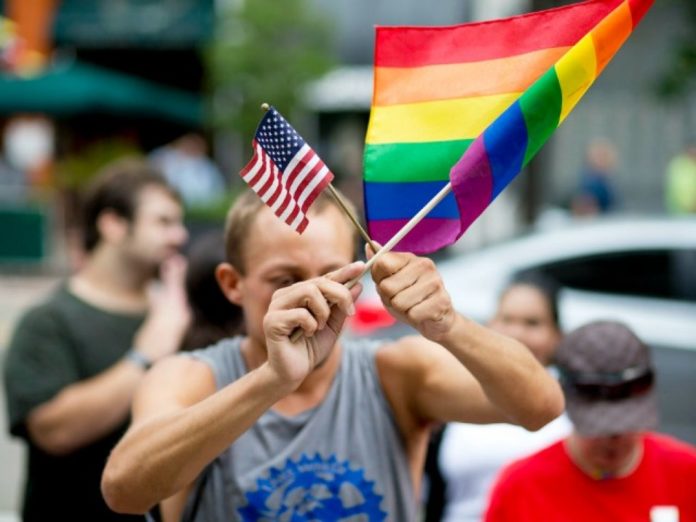A bipartisan group of Arizona lawmakers that includes the Republican House speaker announced Monday they were introducing legislation that would for the first time protect gay and transgender people from discrimination by businesses, landlords, and employers.
The proposal is backed by many business and faith leaders but opposed by a powerful social conservative group.
Many business executives and interest groups have supported anti-discrimination legislation for years, saying the lack of protections for LGBT people diminishes Arizona’s standing in the contest between states for major conferences and business expansions.
“The coalition supporting this are people from so many walks of life coming together based on values of fairness, and freedom for all,” Rep. Amish Shah, a Phoenix Democrat and one of the bill’s main sponsors, said in a Capitol news conference announcing the legislation.
The legislation would prohibit discrimination based on sexual orientation or gender identity in workplaces, housing, and places of public accommodation, which covers most businesses selling goods and services to the public.
The measure would exempt religious institutions such as churches but not individuals who say their faith prevents them from serving certain customers, such as Christian bakers who don’t want to make cakes for same-sex weddings.
It also would prohibit licensed health care professionals from practicing conversion therapy, which aims to change someone’s sexual orientation.
The exemptions for religious organizations won over some in the religious community, including the Episcopal Church and the Church of Jesus Christ of Latter-day Saints.
“This bill means that every Arizonan can be viewed just for who they are, for who God made them in the image of God, and not be discriminated against,” said Bishop Jennifer Reddall of the Episcopal Diocese of Arizona.
Cathi Herrod, the influential president of the social conservative group Center for Arizona Policy, called the bill “very divisive and very controversial.”
“This legislation would treat reasonable disagreement as if it were discrimination, dictate a coercive sexual ethic, and penalize those who dissent,” Herrod said.
Ten Arizona cities have added protections for LGBT people to their anti-discrimination ordinances: Flagstaff, Glendale, Mesa, Phoenix, Scottsdale, Sedona, Tempe, Tolleson, Tucson, and Winslow.
Even with the powerful support of Speaker Rusty Bowers, the measure faces long odds in the Legislature, where social conservatives hold considerable sway with Republicans in the House and Senate.
“I do not anticipate a rose-strewn path in front of me, but we are here honorably and working together,” Bowers said.
Bowers would not commit to holding a vote on the measure if it’s not supported by a majority of House Republicans.
Republished with the permission of the Associated Press.














